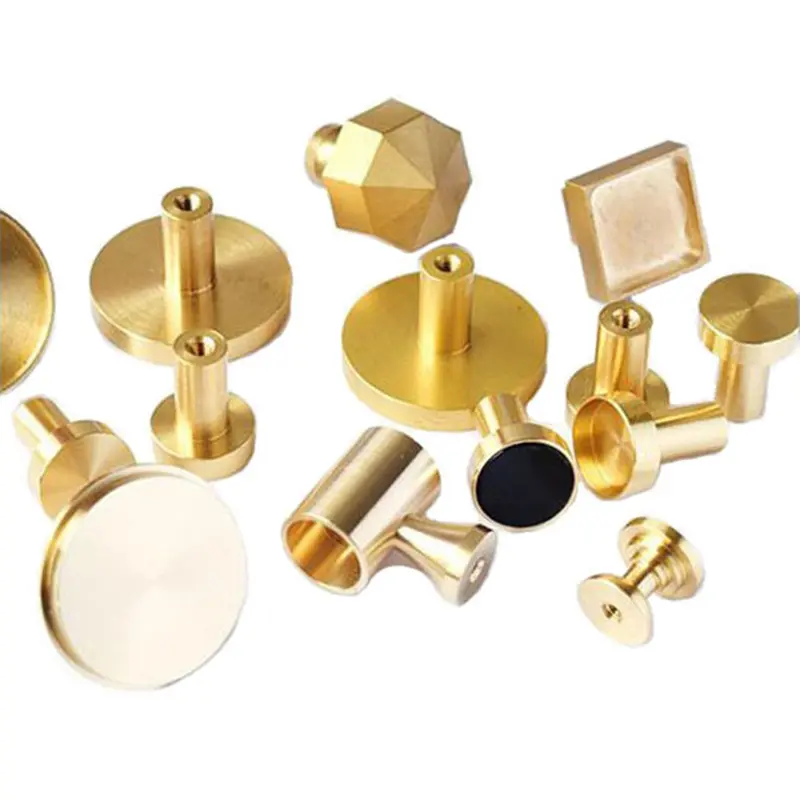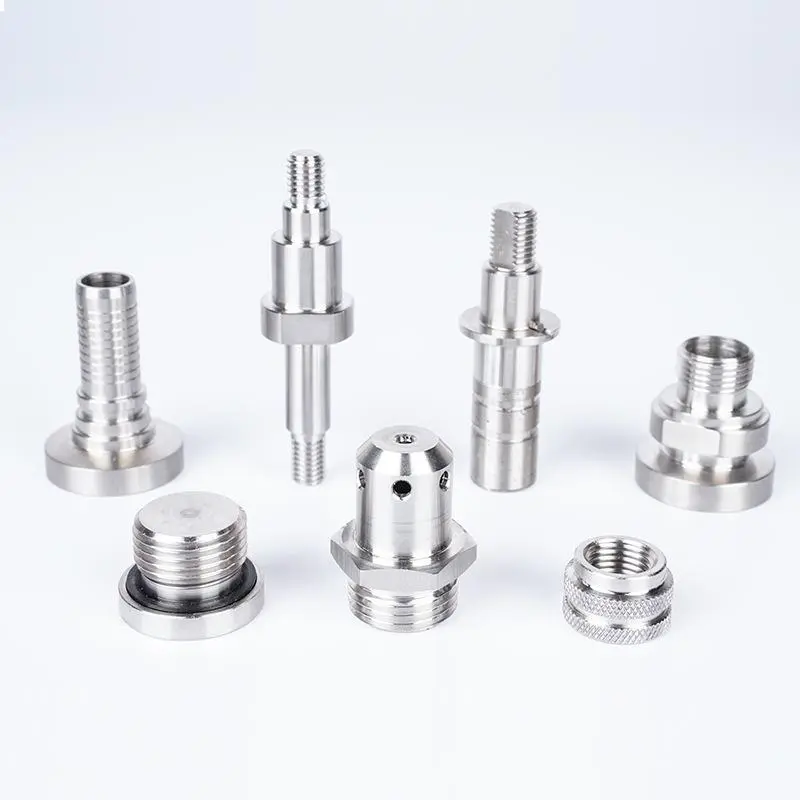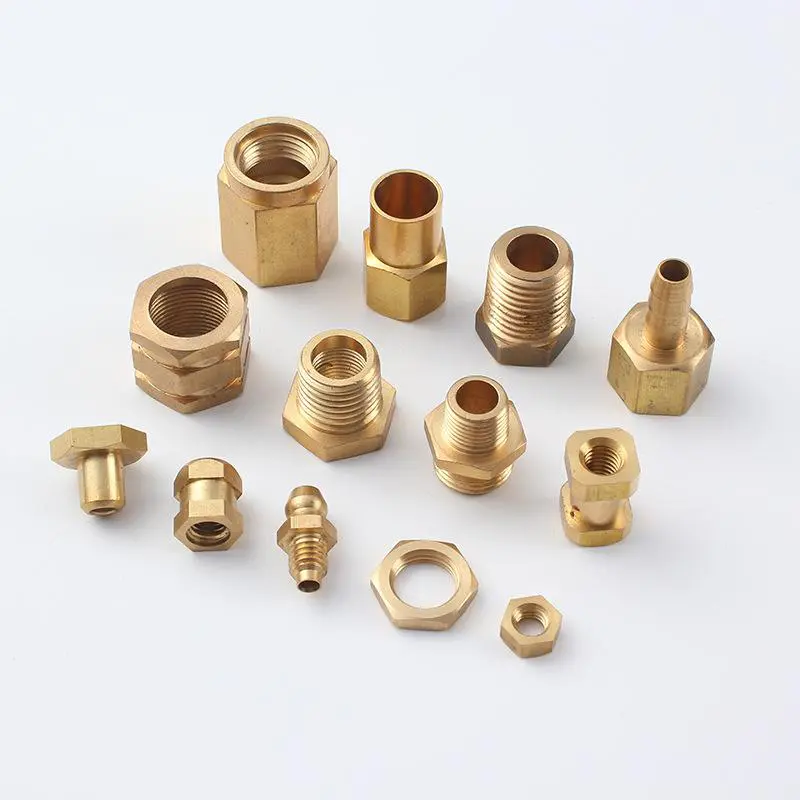Essential Factors to Consider When Sourcing CNC Machining Parts
Published Time:
2025-10-02
Essential Factors to Consider When Sourcing CNC Machining Parts
Sourcing CNC machining parts is a complex process that requires meticulous attention to several factors to ensure quality, efficiency, and cost-effectiveness. With the increasing demand for precision-engineered components across various industries, understanding these crucial elements can make a significant difference in the success of your projects. In this article, we will explore the essential factors to consider when sourcing CNC machining parts, offering insights that will help you make informed decisions.
Table of Contents
- 1. Understanding CNC Machining
- 2. Importance of Quality in CNC Parts
- 3. Finding the Right Supplier
- 4. Evaluating Supplier Capabilities
- 5. Pricing and Cost Considerations
- 6. Lead Times and Delivery
- 7. Sustainability Practices in CNC Machining
- 8. Technological Advancements in CNC Machining
- 9. Frequently Asked Questions
1. Understanding CNC Machining
CNC (Computer Numerical Control) machining is a manufacturing process that utilizes pre-programmed computer software to control machinery and tools. This technology enables precise and complex shaping of materials, including metals, plastics, and composites. Understanding the fundamentals of CNC machining is crucial for sourcing the right parts. Key aspects include:
- **Types of CNC Machines:** Familiarize yourself with various types of CNC machines, including mills, lathes, and routers, as each serves different purposes.
- **Materials Used:** Different materials require different machining processes, and knowing these distinctions can guide your sourcing decisions.
- **Applications:** CNC machining is utilized in various industries, from aerospace to automotive, each with specific requirements for precision and reliability.
2. Importance of Quality in CNC Parts
Quality is paramount in CNC machining parts; even minor defects can lead to significant failures in assembly or functionality. Here are some factors to consider concerning quality:
- **Tolerances and Specifications:** Understand the specific tolerances required for your project. High-precision applications may necessitate tighter tolerances.
- **Material Quality:** The quality of raw materials significantly impacts the final product. Ensure that your suppliers provide materials that meet industry standards.
- **Quality Certifications:** Look for suppliers who hold relevant certifications, such as ISO 9001, which indicates a commitment to quality management systems.
3. Finding the Right Supplier
The choice of supplier can dictate the success of your CNC machining projects. Key steps to find the right supplier include:
- **Researching Suppliers:** Utilize online platforms and industry directories to identify potential suppliers. Pay attention to their reputation and client reviews.
- **Requesting Samples:** Before committing to a supplier, request samples of their work to evaluate their quality and precision.
- **Networking:** Attend industry trade shows or join professional organizations to establish connections with reputable suppliers.
4. Evaluating Supplier Capabilities
Once you have a shortlist of potential suppliers, assessing their capabilities is essential. Consider the following:
- **Production Capacity:** Ensure the supplier can meet your volume requirements within the desired timelines.
- **Technology and Equipment:** Investigate the technology and machinery used by suppliers. Advanced machinery can lead to improved quality and efficiency.
- **Expertise and Experience:** Evaluate the supplier's experience in your specific industry and their technical expertise in CNC machining.
5. Pricing and Cost Considerations
Cost is always a critical factor in sourcing CNC machining parts. However, it is important to look beyond just the price tag. Consider these aspects:
- **Total Cost of Ownership (TCO):** Evaluate not only the initial cost but also factors such as shipping, handling, and potential rework costs.
- **Comparative Pricing:** Obtain quotes from multiple suppliers to compare pricing structures and determine the best value.
- **Negotiation:** Don’t hesitate to negotiate terms with suppliers, especially for bulk orders or long-term contracts.
6. Lead Times and Delivery
Timely delivery is essential in manufacturing. Delays can ripple through your production schedule and impact overall project timelines. Focus on:
- **Supplier Lead Times:** Ask suppliers about their standard lead times and whether they can accommodate rush orders if necessary.
- **Shipping Options:** Understand the shipping methods and costs involved, as these can affect overall project timelines and expenses.
- **Tracking Capabilities:** Ensure your supplier provides tracking information for shipments, allowing you to manage expectations regarding delivery.
7. Sustainability Practices in CNC Machining
As industries move towards sustainable practices, sourcing from suppliers who prioritize sustainability can enhance your brand’s reputation. Look for:
- **Eco-Friendly Materials:** Inquire about the use of biodegradable or recyclable materials in the manufacturing process.
- **Waste Management Practices:** Understand how suppliers manage waste and whether they have initiatives in place to minimize environmental impact.
- **Energy Efficiency:** Suppliers utilizing energy-efficient machines and processes can reduce the overall carbon footprint of your projects.
8. Technological Advancements in CNC Machining
Technology in CNC machining continues to evolve, offering new capabilities and efficiencies. Stay informed about:
- **Latest Technologies:** Keep an eye on advancements such as 5-axis machining, which allows for more complex geometries.
- **Automation Integration:** Many suppliers are adopting automation to streamline operations, improving production times and reducing human error.
- **Software Developments:** Advanced CAD/CAM software can enhance the design and manufacturing process, leading to superior outcomes.
9. Frequently Asked Questions
What materials are commonly used in CNC machining?
Common materials include aluminum, steel, plastic, brass, and titanium. The choice depends on the application and desired properties.
How do I ensure the quality of CNC parts?
Implement a rigorous quality control process, request certifications from suppliers, and conduct thorough inspections of received parts.
What is the average lead time for CNC machined parts?
Lead times can vary widely based on complexity and volume, but typically range from one week to several weeks.
Is it possible to get custom CNC machining parts?
Yes, most CNC machining suppliers offer custom services tailored to specific design specifications and requirements.
What should I do if I receive defective parts?
Contact your supplier immediately to discuss the issue. Most reputable suppliers will work with you to resolve quality concerns.
Conclusion
Sourcing CNC machining parts requires a strategic approach that encompasses various factors, including quality, supplier reliability, cost, and technological advancements. By thoroughly evaluating these elements, you can make informed choices that will enhance the success of your manufacturing projects. Remember that finding the right partner is crucial to achieving high-quality outcomes and maintaining efficiency in your production processes. As you navigate the complex landscape of CNC machining, keep these essential factors in mind to ensure you source the best CNC parts for your needs.
Previous Page
Previous Page
NewsCenter
Beijing Pafinal Precision Machinery Co., Ltd.
Email:sales@pafinal.com

Address: No. 239 Huanhe South Road, Tianjin Pilot Free Trade Zone (Airport Economic Zone), Tianjin
中企跨境-全域组件
制作前进入CSS配置样式
sales@pafinal.com:
Whatsapp:
在线客服添加返回顶部
图片alt标题设置: PAFINAL
表单验证提示文本: Content cannot be empty!
循环体没有内容时: Sorry,no matching items were found.
CSS / JS 文件放置地




 2025-10-02
2025-10-02

